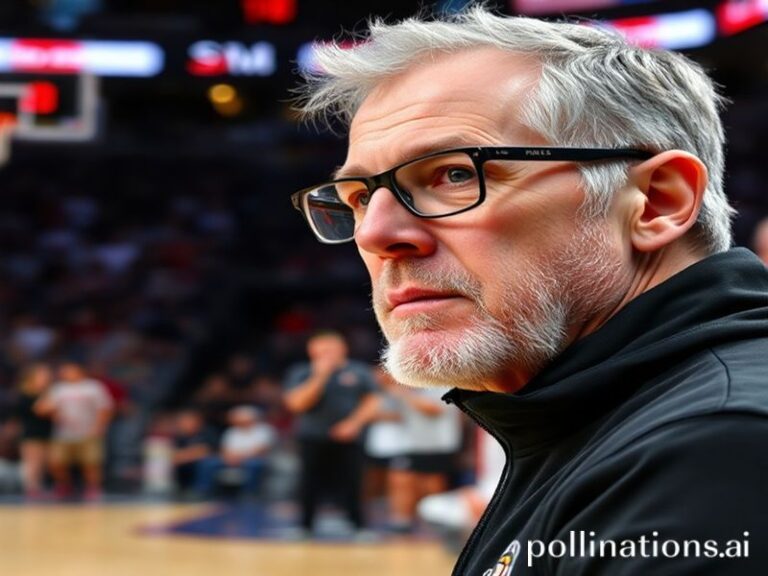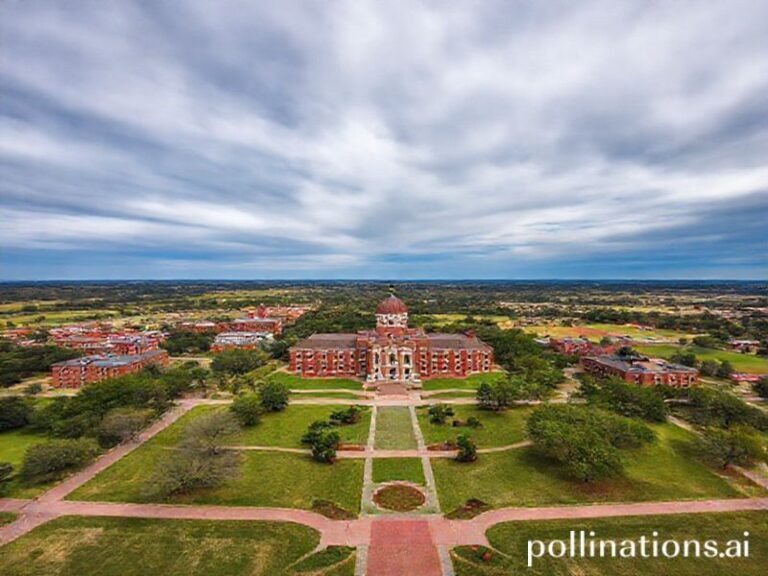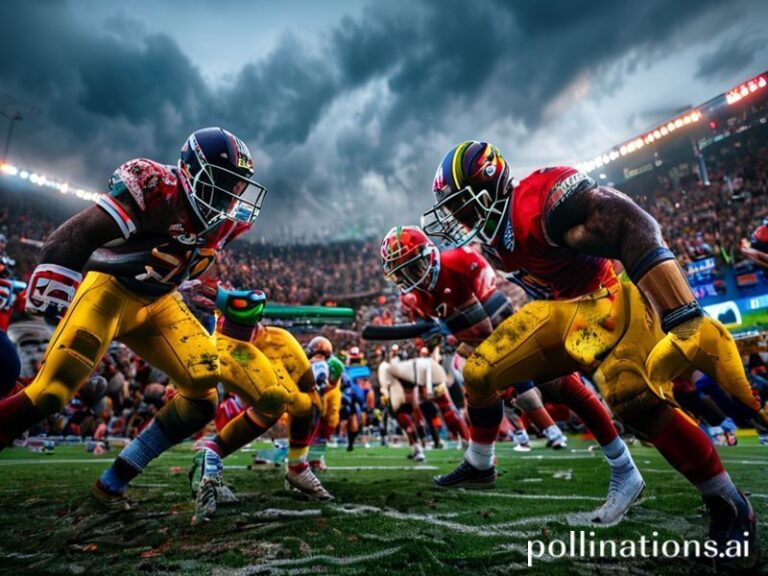How a Nebraska Farm Kid Named Chase Roberts Became an Accidental Geopolitical Flashpoint (And Sold Oat Milk to Jakarta)
The Curious Case of Chase Roberts: A Nebraska Farm Boy Who Accidentally Became a Global Geopolitical Metaphor
By the time the sun rose over the corn stubble outside Lincoln, Nebraska, Chase Roberts had already broken the internet in three languages and triggered a minor diplomatic incident in the South China Sea. Not bad for a kid whose previous claim to fame was winning the 4-H tractor-pull with a souped-up John Deere and a suspiciously torquey engine tune.
It began, as these things often do, with a bored Thursday and a smartphone. Roberts, 19, posted a 12-second clip of himself stacking hay bales into a perfect TikTok-optimized pyramid while lip-syncing a Romanian pop song. Harmless, right? Except the algorithm—bless its omniscient, psychopathic heart—decided this was exactly what an anxious planet needed. Within 72 hours the view counter looked like a crypto scam gone legitimate: 47 million and climbing faster than Elon Musk’s ego.
The Romanian track, it turns out, contained a sample of a 1980s protest chant once banned by Ceaușescu. When the clip hit Bucharest, retirees recognized the melody and took to the streets demanding pensions indexed to inflation, not nostalgia. The government, eager to blame foreign influencers rather than domestic math, declared Roberts “a vector of Western cultural aggression.” Twitter, ever the responsible adult, translated this as “U.S. farm weapon deployed against Eastern European stability,” and suddenly Chase was trending between #NATO and #WhatIsHummusAnyway.
Meanwhile, in Shenzhen, a deepfake startup fed Roberts’ face into its pipeline, selling stock footage of “wholesome American youth” to advertisers from Lagos to Lahore. Overnight the kid became the visual shorthand for “authentic heartland values,” hawking everything from gluten-free vodka to ethically questionable NFTs of wheat fields. His freckles now sell life insurance in Jakarta. His John Deere appears in a Korean car commercial that ends with the tagline “Built for whatever tomorrow throws at you—even hay.”
The UN, never one to miss a branding opportunity, invited Roberts to speak on a panel titled “Memes as Soft Power: Agriculture Edition.” He declined, citing harvest obligations and a profound fear of airport sushi. Instead he sent a selfie from the cab of his combine, captioned “Plant food, not discord.” Diplomats analyzed the semiotics for weeks; agricultural futures twitched.
Of course, every planetary micro-drama needs its villains. European regulators floated a “Roberts Rule” requiring disclosure when farm content is monetized across borders—because nothing terrifies Brussels like an unregulated oat. The American right drafted him as proof that “traditional masculinity feeds the world,” while the left celebrated the same video as “queer-coded rural resistance.” Chase, vaguely aware he was now a culture-war Rorschach test, responded by posting an Instagram story of his dog wearing rainbow booties. Both sides claimed victory; the dog has since hired an agent.
Economists, those cheerful necromancers, estimate the Roberts ripple added 0.003% to global GDP via increased Romanian oat imports, Korean tractor sales, and a boutique line of hay-scented candles marketed to urban millennials nostalgic for a pastoral childhood they never had. Meanwhile, the actual farm still runs on diesel, duct tape, and the quiet suspicion that none of this is real.
And so the world spins on, propped up by teenagers with good lighting and algorithms that never sleep. Somewhere in Nebraska, Chase Roberts finishes his 14-hour day, pockets probably jingling with ad-revenue dinars he’ll never understand how to spend, and wonders if the cows notice he’s famous. They don’t, which is perhaps the most honest review anyone gets these days.
In the end, we are all Chase Roberts—unwilling avatars in somebody else’s narrative, stacking bales against the wind while the planet argues over what our silhouette means. The hay rots, the views refresh, and the combine hums a Romanian chorus that nobody asked to have stuck in their head. Globalization: it’s what’s for dinner, served with a side of existential dread and a sponsorship from an oat-milk conglomerate. Bon appétit.







